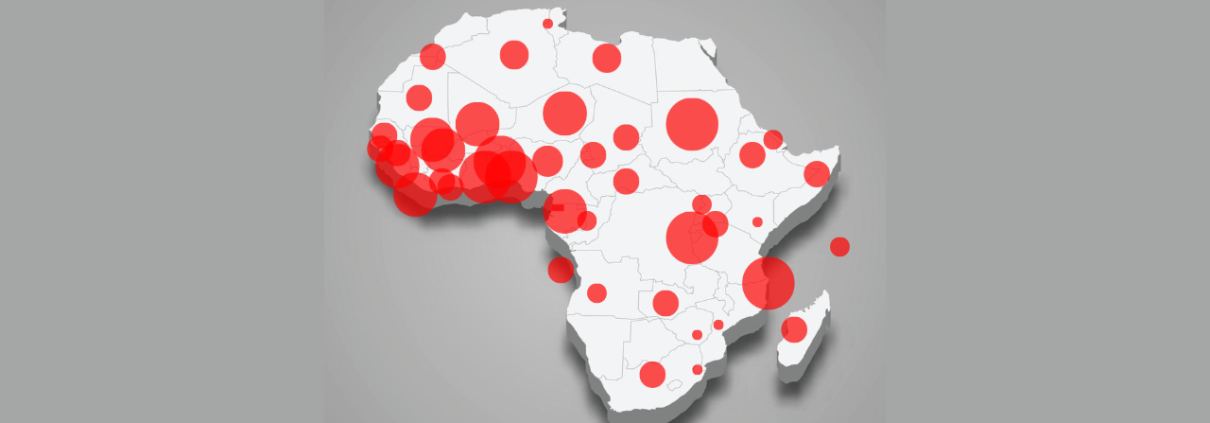A tale of two coups?
A tale of two coups?
Equatorial Guinea
On Friday, 17 May 2024, rumours emerged suggesting a state of emergency or an attempted coup in Equatorial Guinea’s capital, Malabo. Unverified reports claimed a state of emergency had been declared the previous day and mainland borders had been closed.
However, our investigation and local intelligence found no credible evidence to support these claims, and all flights operating as scheduled during this time.
Equatorial Guinea’s leadership is particularly wary of potential coups due to the country’s history of such attempts. President Teodoro Obiang, serving the world’s longest uninterrupted presidency, has been in power since 1979. In October 2003, security services arrested a French journalist amid coup rumours. Obiang also faced a significant coup attempt in 2004 when South African mercenaries, planning to replace him with a more business-friendly figure, were arrested in Zimbabwe en route to Equatorial Guinea. This event, known as the “Wonga Coup,” failed before it could begin.
More recently, in December 2018, a coup attempt involved 40 armed mercenaries from Chad, Sudan, and the Central African Republic, allegedly connected to radical opposition elements within the country. Whether President Obiang’s prolonged tenure is due to exceptional security measures or sheer luck remains unclear. Nonetheless, the nation’s security net remains highly vigilant, and the recent rumours may simply reflect a heightened sense of paranoia stemming from past experiences.
Democratic Republic of Congo
Two days after rumours of a potential coup in Equatorial Guinea, an actual coup attempt unfolded in the DRC capital, Kinshasa. Many details remain unclear, but here’s what is known:
– A firefight erupted outside the Gombe residence of Vital Kamerhe, sole candidate for the post of Speaker of the National Assembly.
– A second group seized the nearby Palais de la Nation, raising the flag of former Zaire.
– The attempted coup was led by 41-year-old Christian Malanga, a naturalised American citizen, who live-streamed the attack on Facebook. Malanga was killed, along with two Congolese security officials, while his son, also involved, was captured alive.
– Gunfire from the capital hit Brazzaville in the neighbouring Republic of the Congo, injuring several people.
Malanga, a wealthy businessman, politician and former Congolese army captain, lived in the US where his family had secured political asylum when he was a child. He had a criminal record for firearms and domestic violence offences in the US. Known for his grandiose aspirations, Malanga stood for election as a member of the opposition in the 2011 DRC legislative elections but was arrested for being openly anti-Kabila prior to polling day. Upon release, he returned to the US, founded the opposition United Congolese Party (UCP), and declared himself President of the “New Zaire” government in exile. He published a manifesto detailing plans to create business opportunities and reform Congo’s security services, campaigned for religious freedom in Africa, and led anti-corruption training for young Africans in Europe.
In addition to three US citizens, a naturalised British subject and the President’s former Security Advisor, Francois Beya, were also arrested. In all, 50 people have been arrested in the security sweeps that followed the events. The African Union condemned the coup and praised the military’s response. We will continue to monitor developments in both territories and provide updates.
More chapters to follow?
Since August 2020, a wave of coups and attempted coups has swept through several African countries, including Mali, Guinea, Burkina Faso, Chad, Niger, and Gabon. The most recent coups in Niger (July 2023) and Gabon (August 2023) have left military leaders still acting as Heads of State.
While ‘Coup Fever’ appears to be contagious in West Africa and the Sahel, it seems last week’s rumours in Equatorial Guinea were unrelated to internal events. Given the rumours surfaced within 48 hours of the Kinshasa coup attempt, it is plausible that news of the impending/planned events in DRC reached Malabo, sparking speculation about a coup or similar actions unfolding closer to home. Unlike the coups in Francophone West Africa and the Sahel, which may have been influenced at least in part by anti-Western sentiment, increasing Russian presence, and the withdrawal of U.N. troops, the DRC incident appears to be a power grab by an individual driven by personal economic and political ambitions. There is no evidence to suggest foreign interference in the DRC event; it seems more a case of an opportunist expecting support from local elements, who ultimately abandoned him.
Regardless, the weekend’s events highlight that coups and attempted overthrows of power remain a persistent threat across the continent, driven by many factors including economic hardship, instability, poor internal security, inadequate education, and perceived weak democracies. With upcoming elections in Chad, Guinea-Bissau, and Mali, further instability is a real possibility.
For those with interests in West Africa and beyond, we offer comprehensive assistance to navigate these challenging environments. With our extensive experience advising clients on their business operations in high-risk areas, Arete are equipped to provide expert guidance and strategic planning to ensure your success and safety. Our services include:
• Planning for Operating in High-Risk Environments: From inception to completion, we provide tailored strategies to ensure your operations run smoothly.
• Risk Assessments and Threat Analysis: We deliver in-depth assessments and analyses to identify and mitigate potential threats.
• Journey Management Services: We ensure safe and efficient travel for your teams, minimizing risks along the way.
Protect your investments and ensure the safety of your personnel with our expert guidance. Contact info@arete-group.com for more information on how we can help you navigate these complex and volatile landscapes.


